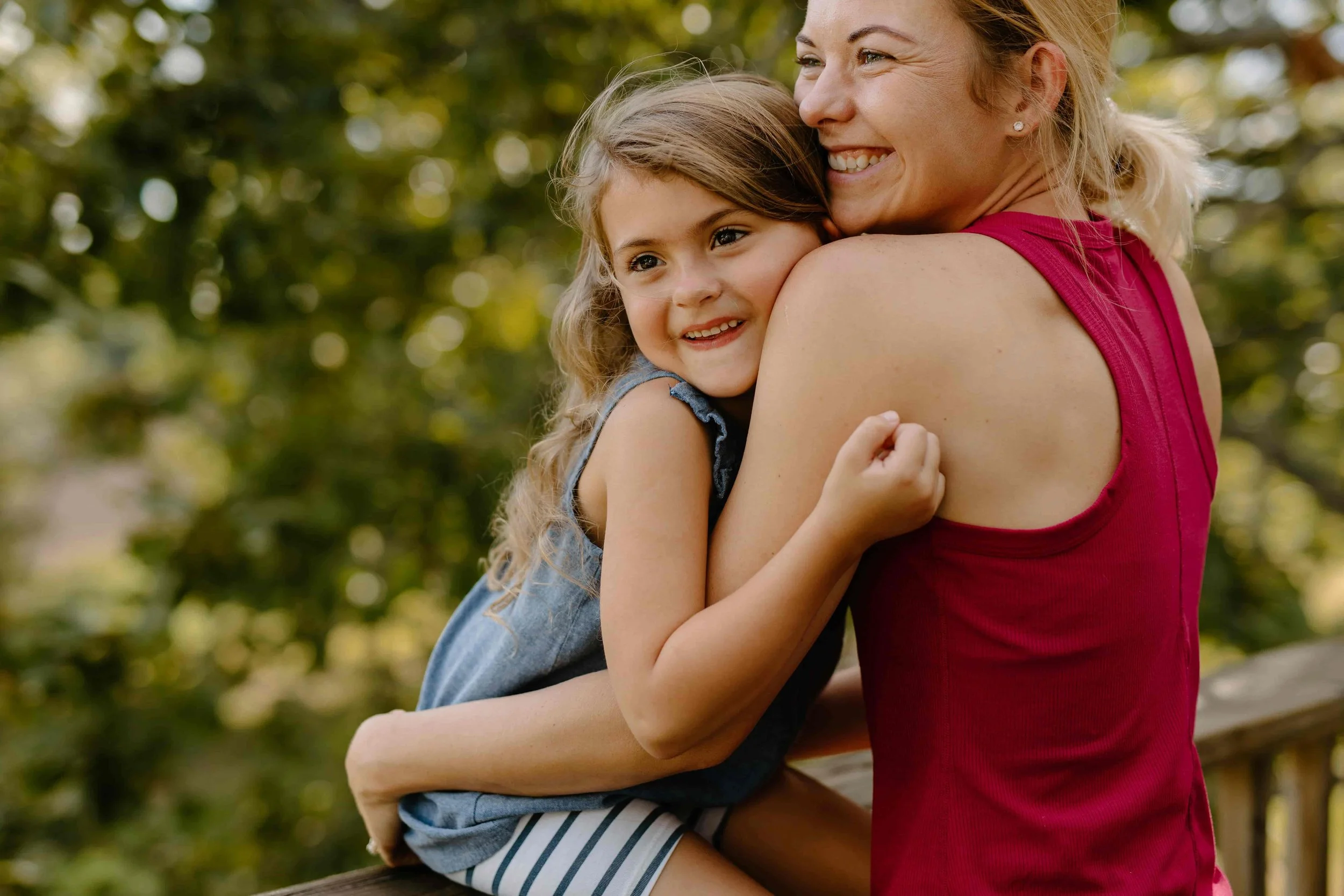
A strong start for growing minds.
Tampa Child & Adolescent Therapy Services
Psychology House offers personalized therapy services for children, teens, and young adults. Specializing in today’s most prominent mental health issues and evidence-based treatments, Psychology House has cultivated an environment where children and adolescents can heal and develop lifelong mental health strategies for the challenges of today.
Child Therapy Services
Our Tampa Child Therapy Services are designed to help children ages 5 through 12 who are learning to cope with a world that is much bigger than they are.
Teen Therapy Services
Our Tampa Adolescent Therapy Services provide a safe place where teens 13 and up can speak their minds without judgment.
Our child & teen areas of focus include:
-
Depression
Characterized by a near constant feeling of sadness, lack of interest or motivation, emptiness, & feeling bad about one’s self
-
Anxiety
Excessive worry, feeling on edge, irritability, exhaustion, inability to control worry or racing thoughts, & difficulty focusing
-
Trauma
Involves lasting fear, distress, numbness, anxiety, and hyper-vigilance after a painful event(s), often making it hard to feel safe
-
Stress
Difficulties coping with mental and/or physical pressures. Often experienced in school, home life, or extracurricular activities
-
Conflict & Relationship Issues
Improve issues related to communication, trust, & boundaries; create meaningful connections where mutual needs are met
-
Self-esteem & Confidence
Persistent self-doubt, difficulty recognizing one’s worth, fear of judgment, & lack of confidence in handling life’s challenges
-
Family Relationship Issues
Frequent conflict, breakdowns in communication, ongoing tension, & difficulty maintaining healthy family relationships
-
Adjusting to Life Transitions
Often emerges as stress, uncertainty, difficulty adjusting, & feeling overwhelmed during major life changes
-
Anger Issues
Identify triggers & calming skills to better understand the message behind anger & learn to express it in healthier ways
-
ADHD Coping Skills
Marked by challenges with focus, organization, impulse control, & managing daily responsibilities at school, work, or home
-
Grief & Loss
Defined by deep sadness, longing, difficulty adjusting to change, & emotional pain after losing a loved one or important part of life
-
Healthier Habits
Addressing issues of sleep, diet, & exercise are imperative for a healthy lifestyle & significantly affect our mental health
Age groups we work with
In-network insurance
A number of our clinicians accept insurance. In Tampa, many of our clinicians work with Aetna, United Healthcare (UHC), GEHA, Oxford, Oscar, and more. However, participation varies by clinician. Our Care Team can help you confirm if your insurance is accepted. Additionally, we offer simple and secure self-pay and out-of-network options.
Meet your child’s therapist
Licensed Child & Adolescent Therapist
Olivia Hoffman, LCSW
Areas of Specialization: Trauma, Anxiety, Depression, & Behavioral Issues
Locations: Tampa & Virtual
Accepted Insurance: Aetna - Soon to be in-network with: United Healthcare (UHC), Oxford, Oscar, & Florida Blue
I’m a therapist who is passionate about helping children, teens, young adults and families discover their strength, build emotional resilience, and find deeper connection in life. My goal is to create a warm, safe space where people feel understood and supported as they learn to make sense of big emotions, worries, or behaviors that feel hard to manage. If this sounds like the support your family is looking for, I would be honored to connect and walk alongside you on this journey.
Treatment Approaches
Know your child is on the right track with treatment approaches proven by research and tested by time.
-
Trauma-Focused Cognitive Behavioral Therapy (TF-CBT) is an evidence-based approach specifically designed to help children, teens, and their families heal after traumatic experiences. TF-CBT combines cognitive and behavioral techniques with trauma-sensitive interventions, guiding individuals to understand and reframe distressing thoughts, regulate overwhelming emotions, and gradually face trauma reminders in a safe way. This therapy emphasizes that traumatic experiences can leave lasting emotional pain, but healing is possible through structured support and coping skills. Alongside processing the trauma, TF-CBT integrates relaxation strategies, affect regulation, and cognitive coping, while also involving parents or caregivers to strengthen safety, trust, and open communication. The goal of TF-CBT is not to erase the past, but to reduce the power of trauma symptoms and empower individuals to move forward with resilience and a renewed sense of stability.
Click here to learn more about TF-CBT.
Treatment Applications - Trauma | Anxiety | Depression
-
Cognitive behavioral therapy (CBT) is one of the most commonly used psychological treatments today. Supported by countless research studies, CBT has been found to have significant improvements in a child’s functioning and quality of life. To briefly put it, CBT focuses on identifying and changing unhelpful thoughts and thinking patterns, as well as unhealthy and problematic behaviors. CBT emphasizes the interconnectedness between our thoughts and behaviors, and uses strategies to help gain awareness and understanding of how our thoughts affect what we do (and vice versa). Through efforts of changing unhelpful thoughts and behavioral patterns, we also change how we feel, which helps us to cope with our issues and life’s stressors.
Click here to learn more about CBT.
Treatment Applications - Depression | Anxiety | Addiction | Trauma | Relationship Issues | And more
-
Acceptance and Commitment Therapy (ACT) is one of the most widely used therapy approaches. Using a variety of techniques, children learn the importance of approaching and accepting their unwanted emotions, rather than avoiding or suppressing them. Acceptance of one’s emotions is learning how to accept one’s self – that our emotional experiences are understandable, important, and make sense. Once acceptance of emotions is achieved, ACT focuses on ways to commit to positive change and living a life aligned by one’s values. ACT postulates that our emotional experiences do not necessarily need to be “fixed,” rather they need attention and permission to be experienced fully, which allows us to experience life more fully. In addition to acceptance and committed action, ACT practices cognitive defusion (observing rather than reacting to a distressing thought), being in the present (mindfulness skills), self as context (realizing we are greater than our thoughts and emotions), and valued living (embracing activities that give meaning and satisfaction).
Click here to learn more about ACT.
Treatment Applications - Depression | Anxiety | Trauma | Chronic Pain | Addiction | OCD | Stress
-
Dialectical behavior therapy (DBT) is a structured therapy that focuses on how to manage intense emotions and relationship challenges. It is often used for those with strong impulses and self-destructive behaviors to help change unhelpful thinking and behavioral patterns. It encourages the practice of skills that are organized by four areas – emotion regulation (managing intense emotions), distress tolerance (tolerating unpleasant emotions instead of escaping from them), mindfulness (non-judgmental awareness of emotions), and interpersonal effectiveness (healthy social and communication skills). DBT skills are often used in conjunction with other therapies.
Click here to learn more about DBT.
Treatment Applications - Personality Disorders (including borderline personality disorder) | Self-harm | PTSD | Eating Disorders | Mood Disorders | Anxiety | Addiction
-
Treatment Applications - Trauma/PTSD | Anxiety | Depression | Panic attacks | Phobias | Grief | Performance Related Issues
Eye Movement Desensitization and Reprocessing (EMDR) is an evidence-based therapy that helps people heal from traumatic experiences by using bilateral stimulation—such as guided eye movements, tapping, or sounds—to support the brain’s natural ability to process difficult memories. EMDR doesn’t require someone to talk in detail about their trauma; instead, it focuses on reducing the emotional intensity of painful memories so they no longer feel as overwhelming or “stuck.” Through a structured eight-phase model, EMDR helps clients identify distressing memories, understand the beliefs tied to them, and replace those beliefs with healthier, more balanced perspectives. As the brain reprocesses the trauma, people often notice a decrease in anxiety, flashbacks, and emotional reactivity, along with a greater sense of calm and control. The goal of EMDR isn’t to make someone forget what happened, but to help the memory lose its emotional charge so they can move forward with more confidence, safety, and resilience.
Click here to learn more about EMDR.
In person & remote
Our office is conveniently located in South Tampa. Just minutes from Palma Ceia, Hyde Park, Davis Island, and Westshore.
Can’t make it into the office? No worries, we’ve got you covered with Teletherapy.
Hours
Monday–Friday | 9am–5pm
Call or text
(813) 736-6281
Email
CareTeam@PsychologyHouse.org

“We wanted to create a place where kids and teens had more than just short-term support. We wanted to give them the tools and strategies to carry them through their lifelong mental health journey.”
- Psychology House Founders
How would you like to get in touch?
Option 1
Contact us or schedule a call
Give us a call, shoot us a text, or send us an email. We’re available Monday through Friday from 9a to 5p. Or, you can schedule a call with our Intake Coordinator at a time that works best for you.
Option 2
Submit an intake form
Fill out this form to be matched with a psychologist on our team who best aligns with your mental health needs. Once matched, your psychologist will reach out to you using your preferred contact method within the next business day.
Start building lifelong mental health strategies for your child, today.
Resource Library
Checkout free resources on Child & Adolescent Therapy from our library.
-
This guide is here to walk you through what teen depression often looks like, how parents can support their child at home, and when it might be time to consider professional help.
-
This guide will walk you through why anxiety is so common in today’s teens, how it compares to past generations, what signs to look for, practical tips you can use at home, and when it’s time to seek help from a teen anxiety therapist in Tampa.
-
This article will help you understand the difference between what’s normal and what might be a red flag, explore the signs your child may need therapy, and highlight how counseling supports Tampa families.
-
In this post, we’ll explore what TF-CBT is, how it works, what a typical session looks like, and why it may be one of the most effective forms of trauma therapy available in Tampa today.
-
In this article, we’ll explore what CBT is, why it works so well, and how it’s helping teens right here in Tampa.
FAQs about Psychology House
-
We are located in South Tampa at:
3414 W Bay to Bay Blvd Suite 100 Tampa, FL 33629
-
We work with adults, children, and teens.
Our child therapists work with children and adolescents as young as 5 and as old as college aged adults navigating academia and early careers.
Our adult-focused clinicians work with adults, professionals, couples, families, veterans, and LGBTQ+ clientele.
-
During your initial intake call, we'll identify the right clinician for you and schedule your first session. Often times, this first session is used as an opportunity to get to know one another and provide more context around the struggles you are facing. There may be a few administrative tasks to take care of and your clinician will likely set expectations for what you can expect treatment to look like going forward. Click here to learn more about how to prepare for your first therapy session.
-
Fit is important, and there is no shame in choosing to work with a different member of our team after a few visits. If for some reason you don’t feel a good fit within our team, we’ll connect you with other highly rated practices in the area; just so you’re not starting back at square one.
-
We currently work with Aetna, United Healthcare (UHC), GEHA, Oxford, and Oscar. Additionally, we have simple & secure self-pay and out-of-network options.
-
Many insurance plans offer out-of-network benefits, allowing you to work with the provider of your choice while still covering a percentage of your costs. If we do not work with your insurance, you may be able to receive out-of-network coverage with your current insurance plan. To learn more about our out-of-network option, click here. You can also self-pay with our simple & secure online billing.
-
Yes! We offer secure, HIPAA compliant video Telehealth sessions.
-
Many of our clinicians are PsyPact certified, allowing them to practice across multiple states. If you live out of state, plan to move soon, or travel a lot, you may still be able to work with a clinician of your choice. To learn more about our PsyPact team members, click here.
-
We are located on the first floor of our building, however, our doorway is raised 4 inches off the ground, which could make it difficult for some mobility devices. Additionally, our parking lot does not have a dedicated handicap space, but does have two curb-side parking spaces that provide adequate space on one side.







